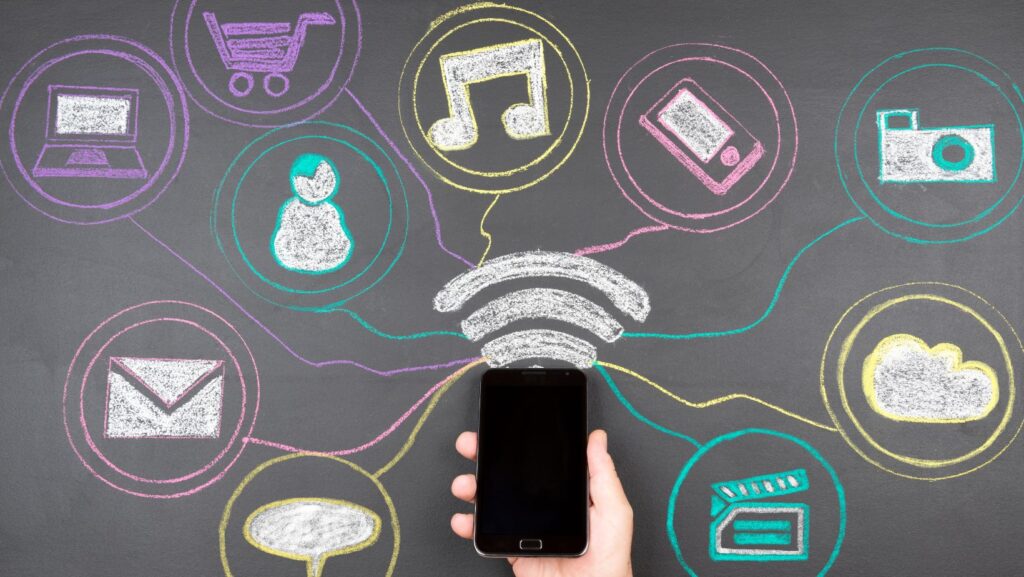Technology has emerged as a powerful force in the 21st century, fundamentally reshaping our society and cultural trends. Smart devices, fast internet, and new apps have changed how we interact, create, and live in today’s society. Social media has become a powerful platform for sharing ideas and starting movements. In entertainment, streaming services and mobile apps have changed what we watch and how we watch it, introducing new habits like binge-watching and expecting content on-demand.
As we delve deeper into this digital era, emerging technologies such as artificial intelligence, the Internet of Things, and blockchain will bring even more radical changes to our cultural landscape. These advancements promise to further personalize our experiences, reshape our economies, and potentially alter our very concept of reality.
This article explores how technology is shaping cultural trends, examining its impact on communication, media consumption, creativity, global exchange, and emerging forms of digital culture.
Social Media
Social media platforms have revolutionized how we communicate and share information. These digital spaces have become the modern equivalent of town squares, where ideas spread rapidly, movements gain traction, and cultural phenomena are born.
The rise of social media influencers has created new forms of celebrity and altered traditional marketing strategies. Influencers, ranging from micro-influencers with niche followings to macro-influencers with millions of followers, have become powerful voices in shaping consumer behavior and cultural trends. Their ability to connect with audiences on a personal level has led to a shift in how brands approach marketing, with many now prioritizing influencer partnerships over traditional advertising methods.
Viral challenges have become a hallmark of social media culture, spreading globally at unprecedented speeds. These challenges, which often involve users creating and sharing content around a specific theme or action, can range from lighthearted entertainment to awareness campaigns for serious causes. The Ice Bucket Challenge, for instance, not only raised awareness for ALS but also generated significant funding for research.
Virtual Communities & Digital Subcultures
The internet has facilitated the formation of niche communities and subcultures that transcend geographical boundaries. Online forums and interest groups hosted on platforms like Reddit and Discord have created spaces for people with shared interests to connect, share information, and form communities. These platforms host countless communities centered around specific topics, from niche hobbies to academic disciplines, allowing people to find like-minded individuals regardless of physical location.

Gaming communities have evolved into complex social ecosystems with their own cultures and economies. Massive multiplayer online games (MMOs) like World of Warcraft and Final Fantasy XIV have created virtual worlds where players not only engage in gameplay but also form lasting friendships, participate in virtual economies, and even celebrate real-life events within the game.
These communities have their own languages, customs, and social hierarchies, mirroring real-world societies in many ways.
Media Consumption in the Digital Era
The rise of streaming services has dramatically altered how we consume entertainment. Binge-watching, or watching multiple episodes or entire seasons of a show in one sitting, has become commonplace. This shift in viewing habits has influenced storytelling techniques, with many shows now structured to encourage continuous viewing.
The production of original content by streaming platforms has disrupted traditional TV and film industries. Companies like Netflix, Amazon Prime, and Hulu have invested heavily in creating their shows and movies, competing directly with established studios and networks. This shift has led to increased diversity in content, as streaming platforms are often willing to take risks on unconventional or niche projects that traditional networks might avoid.

On the other hand, mobile apps have become central to daily life, influencing everything from how we navigate cities to how we manage our health. App-based services have transformed various industries and social norms. Ride-sharing apps like Uber and Lyft have revolutionized transportation in many cities, while food delivery apps have changed how people interact with restaurants and consume meals.
Mobile gaming has exploded in popularity, reaching demographics previously untapped by the gaming industry. Casual games, which are typically easy to learn and play in short bursts, have become ubiquitous on smartphones. Due to advancements in mobile technology, graphics, and sound design in the iGaming industry, the real money online slots have evolved from traditional casino games to highly immersive experiences.
Emerging Technologies
One of the biggest emerging technologies that shape cultural trends is Artificial Intelligence (AI). Regarding entertainment, AI-driven recommendations are tailoring content to individual preferences across platforms. Streaming services, social media feeds, and news aggregators use AI algorithms to curate content based on user behavior and preferences. This level of personalization has the potential to greatly enhance user experiences but also raises concerns about the potential for creating echo chambers.
AI in creative fields is pushing the boundaries of creativity. AI-generated art, music, and writing are becoming increasingly sophisticated, raising questions about the nature of creativity and the role of human artists in an AI-augmented world. Some artists are embracing AI as a tool for enhancing their creative process, while others are exploring the unique aesthetic possibilities of AI-generated content.
Augmented and Virtual Reality technologies also open new frontiers for self-expression and experience. Virtual concerts, art exhibitions, and conferences have shown that these technologies can provide engaging experiences even when physical gatherings are impossible.
Augmented reality applications in shopping, education, and gaming blur the lines between digital and physical worlds. In retail, AR apps allow customers to virtually try on clothes or see how furniture would look in their homes. In education, AR can bring textbooks to life with 3D models and interactive elements. Gaming experiences like Pokémon Go have shown how AR can encourage physical activity and social interaction while providing entertainment.
As technology continues to evolve rapidly, its influence on cultural trends will only increase. From reshaping how we communicate and consume media to altering our concepts of identity and community, technology is the driving force behind many of today’s most significant cultural shifts. As we move forward, it will be crucial to navigate this digital landscape thoughtfully, using its potential for positive change while being mindful of its challenges and limitations.
